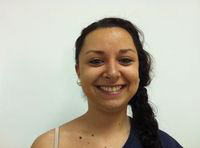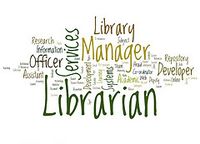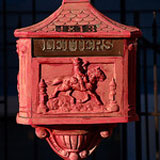JOB INTERVIEW.- Communicative activities.

It's late but Lourdes and Susana are still in the office. They had a very stressful week, but they seem happy with the progress they are making.
Lourdes is really tired: "I didn't think that we were going to learn that much, when we came here. Now we have a good CV written in English and we know a lot about the recruitment process in a big company."
Susana agrees with her: "That's right. You know, I used to think that I wasn't ready to look for a job, but know I feel much more confident."
Lourdes is surprised: "Wow, that's great. You know, maybe, when we finish our traineeship we could even apply for a job here in London!"
Susana looks at her friend and says: "That's exactly what I was thinking. Wouldn't that be fantastic! Imagine... the two of us living and working here in London..."
"Well, that's a good plan for the future", begins Lourdes, "but I'm afraid we still have a lot to do before we get there."
Susana has started packing up her things. "I guess you're right. It's getting late. Shall we go to the café round the corner to have an iced coffee and a chocolate muffin? I'm starving!"
What have you learned in this unit? Can you do the following things?
- Talk about you job / your future job.
- Write a CV.
- Understand abbreviations in job ads.
- Write a covering letter.
- Answer job interview questions.

1.- Reading Exercise.
Let's read the following text to find out about some useful tips for a job interview.

Complete the text with the words below.
candidate, clarification, contact, expectations, handshake, mentioning, polite, replies, thank, unexpected, whole.
Tips for a Successful Job Interview
Tip No. 1: Be cheerful and when you greet your interviewer. You should be on your feet, smiling and making eye . In many Western cultures, a short handshake is appropriate at this time.
Tip No. 2: Be open to making small talk. Give standard to standard questions. For example:
- "How are you today?" -- "Fine, thank you. And you?"
- "Did you have any trouble find us?" -- "No, not really."
This is one case where not telling the truth is completely acceptable. If you planned well and you arrived on time, then any difficulties getting there are not worth . Don't talk about getting lost or missing your bus. If you want to add a few words, you can say: "I enjoy coming to this part of the city" or "your receptionist gave very good directions."
Tip No. 3: There will always be typical questions about your work experience, strengths, weaknesses, goals and salary . But the interviewer may also throw in some questions to get a better feel for who you are and how you'd fit in at the given company. Even if the interview is in your own native language, it's possible for these more creative questions to be unclear. Instead of guessing what the interviewer really wants to know, you can ask for :
- "So if I understand correctly, you're asking me…"
- "Let me start by answering… But perhaps I'm not headed in the right direction. Did I understand your question?"
Tip No. 4: Even if you possess many qualifications, you may begin to feel that you're not giving the right answers or making the best impression, so one acceptable strategy is to get the interviewer to talk a little. You should listen and try to get an idea about what the interviewer is looking for in the ideal . Ask something like this:
- "Can I ask how long you've been here? Have you enjoyed the experience?"
- "I got a good impression as soon as I entered the office, but I have yet to really observe everyone in action. How would you describe the work environment here?"
Tip No. 5: Wait for the interviewer to end the meeting. When the interview is drawing to a close, smile and the interviewer for his or her time. You can also express your pleasure over the entire experience.
- "Thank you for meeting with me today. I really enjoyed our conversation. Have a nice day."
A final is appropriate as you part ways. Please remember that your chance to make a good impression doesn't end with "good-bye." You should send a thank-you note later that day or on the very next morning.
Text adapted from http://english.ohmynews.com/articleview/article_view.asp?at_code=435195
2.- Listening Exercise.
Listen to an expert discussing covering letters and then do the exercise below.

Decide if the following statements are true or false.
A long letter creates a positive impression.
3.- Speaking Exercise.

Answer the following questions:
Do you know anyone who...?
- Has applied or is applying for a job? What kind of job?
- Has been interviewed? How did it go?
- Does a lot of overtime? Why?
- Has a part-time job? What hours does he or she work?
- Has been promoted recently? What to?
- Has a permanent job?
- Gets stressed all the time? What does he/she do about it?
- Has just retired?
4.- Writing Exercise.

Write ten Dos or Dont's to help people who are writing letters of application. The first ones have been done for you.
- Check for spelling and grammar mistakes.
- Don't use initials for company names or qualifications.
Appendix.- Licenses of resources.
| Resource (1) | Resource information (1) | Resource (2) | Resource information (2) |
|---|---|---|---|
 |
By: Victor1558. License: CC by. From: http://www.flickr.com/photos/76029035@N02/6829406809/in/photostream/ |
 |
By: Nate Steiner. License: CC by. From: http://www.flickr.com/photos/nate/236619128/ |
 |
By: Paul Stainthorp. License: CC by-sa. From: http://www.flickr.com/photos/pstainthorp/5471415240/ |
 |
By: cheesyfinger2k1. License: CC by-nc-sa. From: http://www.flickr.com/photos/cheesyfinger/3218817265/ |